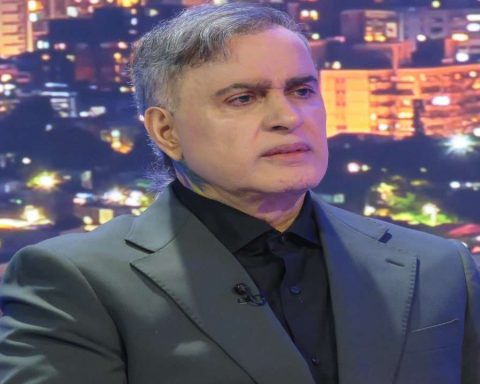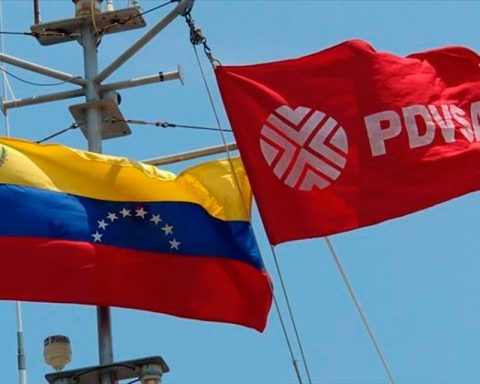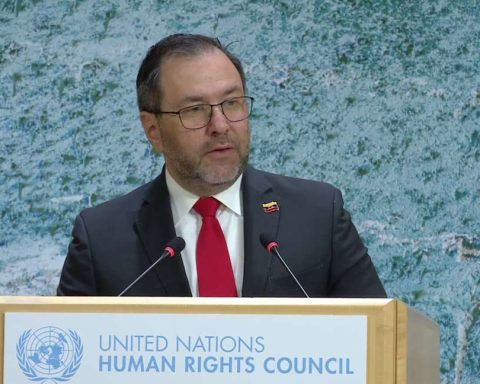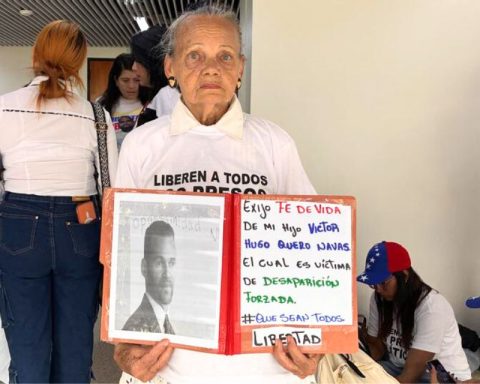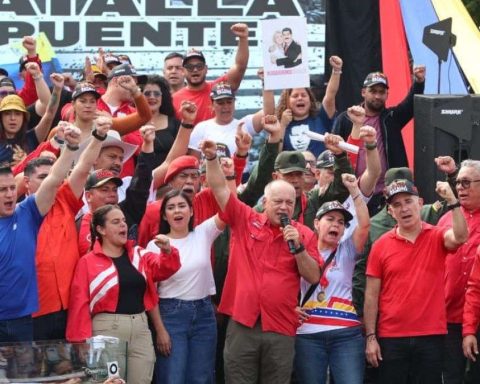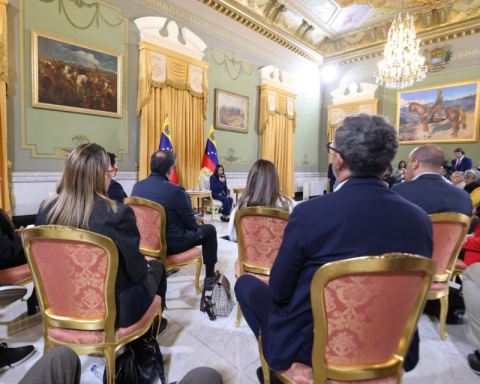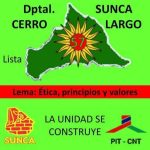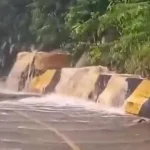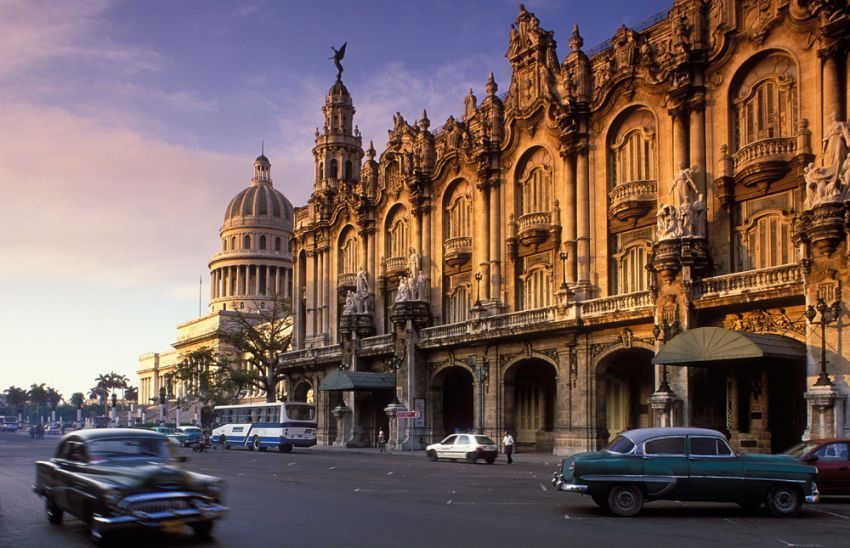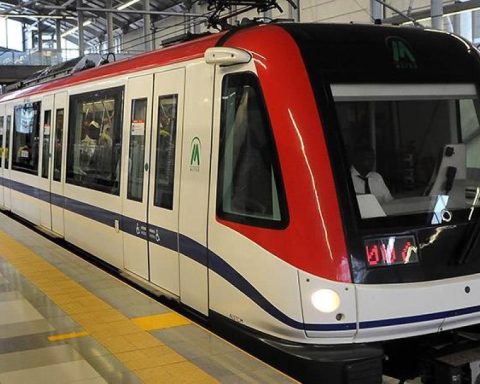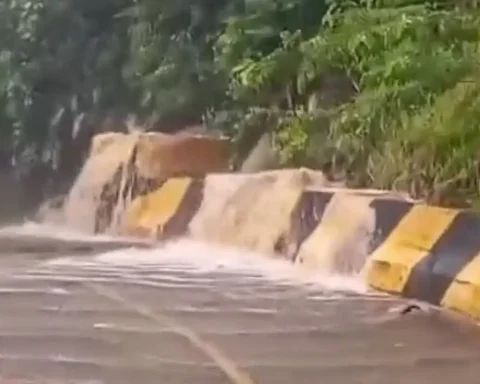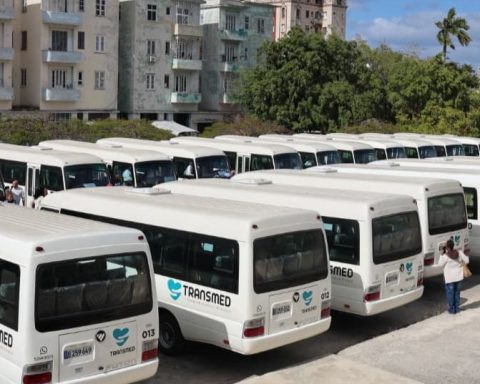An investigation by the International Criminal Court for crimes against humanity has weighed on Venezuela since November 2021. Although the process is ongoing, Venezuela has not yet shown that it did not commit them, as Larry Devoe, the Venezuelan human rights representative before the international system, wanted Cedaw to believe.
Text: Ligia Perdomo
Before the Committee for the Elimination of Discrimination against Women (Cedaw) of the United Nations, Larry Devoe, representative of the Venezuelan State for the International Human Rights System, made –in just two minutes– three statements that are questionable.
On May 18, 2023, Devoe participated in an interactive dialogue with experts from the Committee for the Elimination of Discrimination against Women, to report on the country’s progress in the area of women’s human rights (DDHH).
As a representative of the government of Nicolás Maduro, Devoe adhered to the official discourse of “defense and fight for the human rights of Venezuelans”, although to date the authorities have not been able to prove it in international instances.
*Read also: Maduro’s “feminist government” collapses in its latest report to Cedaw
1.- Venezuela is clean of crimes against human rights
“Venezuela has sufficiently demonstrated that crimes against humanity have not been committed in the country,” Devoe said at the international forum. However, there is no sign of it. In November 2021, the International Criminal Court (ICC) opened a formal investigation against Venezuela for crimes against humanity for acts committed as of February 2014, the date on which the political violence promoted by the State became recurrent.
In 2017, Fatou Bensouda, the ICC prosecutor to date, opened a preliminary examination on the situation in Venezuela to evaluate “alleged crimes that could be the competence of the ICC.”
“In particular, it has been alleged that state security forces frequently used excessive force to disperse and repress demonstrations, and that they have detained and imprisoned thousands of real or apparent opposition members, some of whom were allegedly subjected to to serious abuse and mistreatment during his detention,” Bensouda said.
As of May 22, 2023, the process is still ongoing. There is no definitive answer on the various serious cases of systematic violation of human rights analyzed by the Court.
*Read also: CPI denied request for reply to the State to respond to victims of human rights violations
2.- The ICC has no jurisdiction for the Venezuelan case
“Crimes against humanity have not been committed in Venezuela and therefore the ICC has no competence to know the situation in Venezuela,” Devoe said during the defense of the ninth report of the Convention on the Elimination of All Forms of Discrimination against Women. (Cedaw).
Pursuant to Article 5 of the Rome Statute, which creates the International Criminal Court, its jurisdiction will be limited to the most serious crimes of concern to the international community as a whole. The Court shall have jurisdiction, in accordance with this Statute, with respect to the following crimes:
- The crime of genocide;
- Crimes against humanity;
- War crimes;
- The crime of aggression.
A crime against humanity is understood to mean any of the following acts when committed as part of a widespread or systematic attack against a civilian population and with knowledge of said attack:
a) Murder;
b) Extermination;
c) Slavery;
d) Deportation or forced transfer of population;
e) Imprisonment or other serious deprivation of physical liberty in violation of fundamental norms of international law;
f) Torture;
g) Rape, sexual slavery, forced prostitution, forced pregnancy, forced sterilization or any other form of sexual violence of comparable severity;
h) Persecution of a group or collectivity with its own identity based on political, racial, national, ethnic, cultural, religious, gender reasons defined in paragraph 3, or other reasons universally recognized as unacceptable under international law, in connection with any act mentioned in this paragraph or with any crime within the jurisdiction of the Court;
i) Forced disappearance of persons;
j) The crime of apartheid;
k) Other inhuman acts of a similar nature that intentionally cause great suffering or seriously threaten physical integrity or mental or physical health.
After the Prosecutor’s Office opened a preliminary examination to Venezuela in February 2018, in September of that year Argentina, Canada, Chile, Colombia, Paraguay and Peru asked the Prosecutor’s Office to investigate possible crimes against humanity in Venezuela. It was the first time that a group of countries jointly requested the Prosecutor’s Office to investigate alleged crimes committed on the territory of another ICC member state. This referral by States allows the prosecutor to initiate an investigation without prior approval from ICC judges.
*Read also: Provea: The only containment we have in the face of human rights violations is international action
3.- In Venezuela “it is investigated”
“Venezuela has shown that the institutions of our justice system have investigated or are investigating all cases of alleged violation of human rights,” Devoe said.
In the report presented on September 20, 2022 by the United Nations Independent International Fact-Finding Mission on Venezuela, the authorities are urged to investigate their responsibilities.
“Our investigations and analysis show that the Venezuelan State uses intelligence services and their agents to suppress dissent in the country. This leads to the commission of serious crimes and human rights violations, including acts of torture and sexual violence. These practices must cease immediately and those responsible must be investigated and prosecuted in accordance with the law,” said Marta Valiñas, president of the UN fact-finding mission, at the time.
The accounts of murders, torture, sexual violence, persecution, forced disappearance of people and other inhumane acts are documented by UN bodies. Some of the complaints have also been filed with other international entities such as the Inter-American Commission on Human Rights (IACHR) of the Organization of American States (OAS).
Devoe stated that “all cases of alleged violation of human rights” are being investigated. Could not be farther from the truth. Not all are investigated and some of the procedures opened have been due to international pressure and not at the initiative of local justice. The Venezuelan system does not carry out credible investigations and does not convict the perpetrators, says the Center for Justice and Peace (Cepaz).
The Judiciary is questioned for not complying with the principle of separation of powers and being at the service of political power.
«After 1999 the political power has made a broadside to take control of the Judiciary. ‘Political power has successfully taken over the legal system.’ This policy of control, which is exercised through the Supreme Court of Justice (TSJ), has made judges in Venezuela fear making decisions autonomously. In addition, Carlos Lusverti, legal adviser to the International Commission of Jurists (ICJ), pointed out that there are corruption networks within the Judiciary, not only associated with political interests, but also with others within organized crime strategies,” reports a publication by Cepaz, June 2022.
As Cepaz points out and jurists, Venezuelan NGOs and international organizations agree, the lack of independence of the Judiciary in the country is one of the greatest obstacles to access to justice for victims of human rights violations.
The United Nations Independent International Fact-Finding Mission came to several conclusions in its September 2021 report. Here are some of them:
– The Mission has reasonable grounds to believe that in the cases analyzed, the judges and prosecutors, instead of having guaranteed, have denied the enjoyment of rights to persons opposed to the Government, real or perceived, for having suffered interference from within the hierarchy of the Judiciary or the Public Ministry. Irregularities in cases presented before courts and tribunals with specialized competence in terrorism matters are especially prevalent.
– The Mission has reasonable grounds to believe that judges and prosecutors have neglected their obligation to protect opponents of the Government, real or presumed, against arbitrary detentions and arrests carried out without a warrant, often justifying them under the figure of flagrante delicto contrary to what would have emerged from the facts.
– The Mission has reasonable grounds to believe that judges and prosecutors have played a key role in arbitrary detentions. They have based arrest warrants and preventive detention and accusations on facts and evidence that did not imply criminal acts or on the basis of which the person’s participation could not be identified. In some cases, the arrests and charges were based on evidence manipulated, fabricated, or obtained through torture or coercion.
– The Mission has reasonable grounds to believe that, if the prosecutors and judicial actors had adequately and fully performed their constitutional role, they could have prevented the commission of many of these crimes and violations or, at least, could have placed rigorous obstacles to hinder the ability of members of the State’s public security and intelligence services to commit them.
– The Mission has reasonable grounds to believe that the justice system has played a significant role in State repression of government opponents instead of providing protection to victims of human rights violations and crimes.
With all the available evidence, the statements made by Larry Lavoe before the United Nations Committee for the Elimination of Discrimination against Women (Cedaw) regarding the Venezuelan justice system and the alleged demonstration by the State of not having committed crimes can be questioned. against humanity.
Post Views: 94

